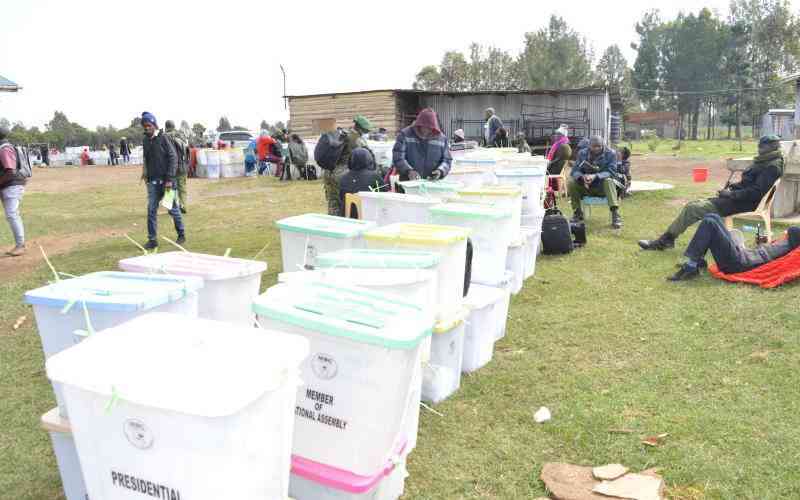×
The Standard e-Paper
Stay Informed, Even Offline

During a media briefing on Wednesday 10 August, the Independent Electoral and Boundaries Commission (IEBC) chairman Wafula Chebukati noted the slow pace in which Kenyan media is taking to tally provisional presidential results.
Speaking from the Bomas of Kenya, IEBC's National tallying centre, Chebukati wondered why the mainstream media was sluggish yet 97 percent of Forms 34A had been loaded on the IEBC portal.